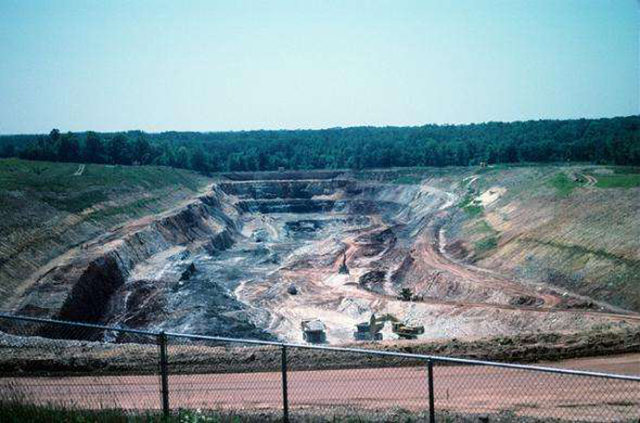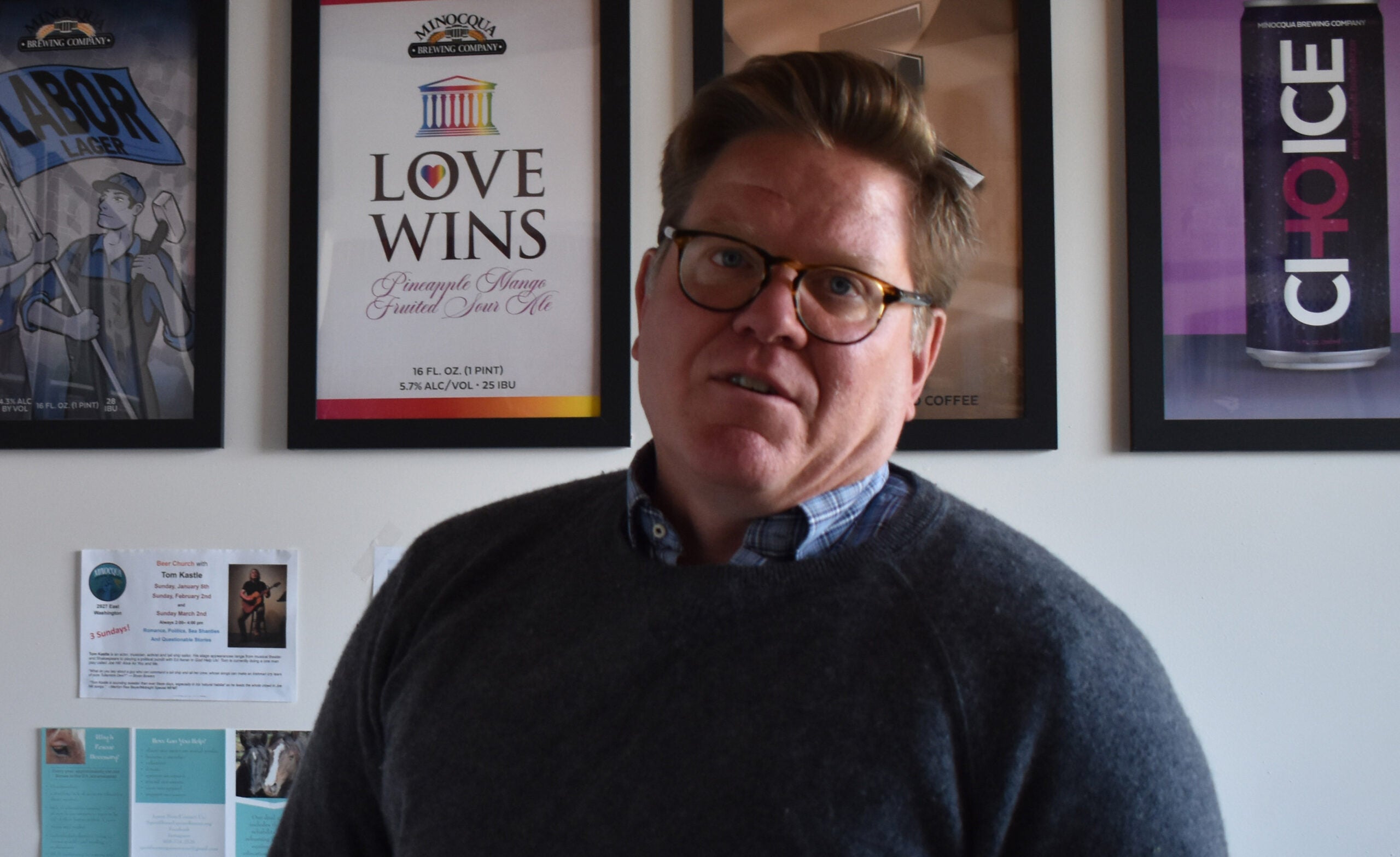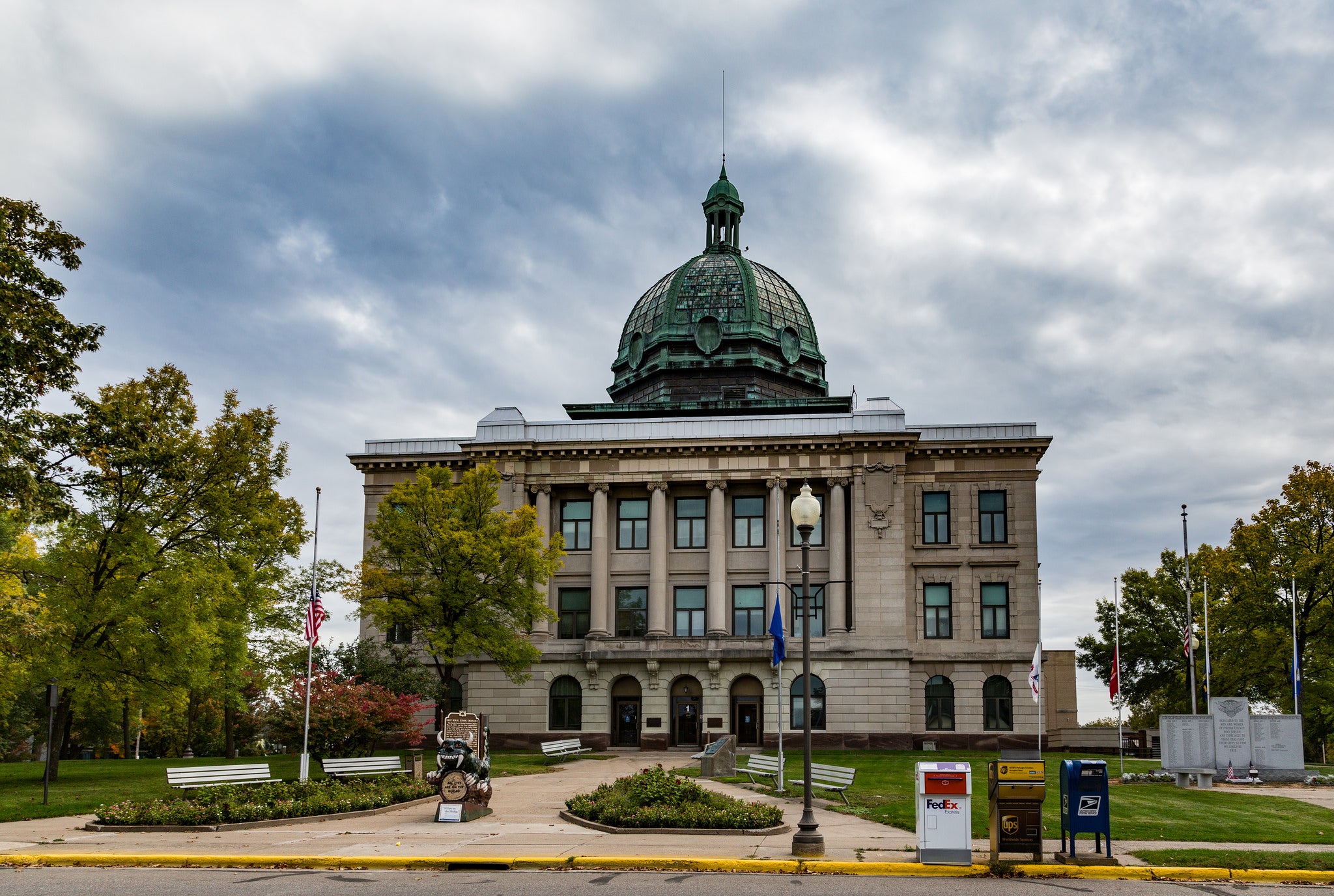A Canadian mining company has pushed back plans to begin exploratory drilling for copper and gold in northern Wisconsin as it continues to submit information to Wisconsin environmental regulators.
GreenLight Metals, doing business as GreenLight Wisconsin, wants to conduct exploratory drilling of the Bend Deposit at a 40-acre site owned by the U.S. Forest Service in Taylor County. The deposit is believed to contain 4 million tons of mostly copper and gold.
In February, GreenLight submitted a revised notice of intent to drill after first detailing its plans last fall with the Wisconsin Department of Natural Resources. The company now states it hopes to begin drilling up to eight holes at six sites this spring or summer at the earliest or next winter.
Stay informed on the latest news
Sign up for WPR’s email newsletter.
GreenLight also submitted its exploration plan for the Reef Deposit in October. That deposit is roughly 12 miles east of Wausau in Marathon County near the Dells of the Eau Claire River. It’s believed to contain around 454,000 tons of gold reserves. The company stated it planned to drill at up to nine sites. If approved, GreenLight hoped to move forward this winter, but that hasn’t happened.
“Mining is a process that takes time. GreenLight Metals remains focused on exploring the potential resources available in the Bend and Reef Deposits and working to complete our exploratory licenses for these sites,” Dan Colton, President & CEO of GreenLight Metals, said in a statement. “We continue to engage with local stakeholders and look forward to continuing to strengthen our community ties and social license here in the region.”
Ben Callan, manager for the DNR’s Integration Services Section, said the agency has requested more information from the company at both the Bend and Reef deposits.
Additional bond and permit required to drill in Taylor County
In Taylor County, Callan said the company will need to obtain a wastewater permit for drilling. The agency requested more information in a March 7 letter about its plans to withdraw water from the North Branch of the Yellow River, which is designated as a special waterway in Wisconsin. Depending on its plans, the company may need to obtain a waterway permit. In addition, the DNR said wetlands and stormwater permits won’t be required based on information provided.
“They are under the threshold for disturbance for stormwater, but there’s some clarification that needs to be incorporated into their plan regarding erosion control and best management practices,” Callan said.
The company also needs to submit an additional $45,000 bond or increase its existing bond to $50,000 to cover the cost of abandoning the drill holes. If its plans move forward, the company expects work may be conducted in phases and last about 10 weeks.
GreenLight has identified drilling fluids it plans to use for exploration, and some residents have expressed concerns about the presence of PFAS in those products. The DNR said its examination of ingredients used in an approved list of drilling fluids showed no evidence of the chemicals. The agency added it’s not testing those fluids for PFAS because it’s prioritizing the use of limited funds for sampling of private wells in areas with high levels of the chemicals.
More details needed on drill plans in Marathon County
Regarding the Reef Deposit, Callan said the agency has not received a response to a six-page letter sent in October requesting more information. The agency is seeking more details on things like erosion control, drilling fluids and the amount of sulfide minerals expected in small bits of rock removed from drill holes.
While the DNR must review information within certain timeframes, Callan noted applicants are under no such time constraints.
“We’re working with information as we get it,” Callan said.
Shad Harvey, land resources manager for Marathon County, said the company submitted an incomplete application to obtain an exploration permit from the county last year.
“We don’t have a completed application yet, and we’re still working with the DNR to get all the required information,” Harvey said.
Harvey said officials expect they would receive a complete application once GreenLight has satisfied the state’s request, noting the county’s requirements can’t be more or less strict than state standards.
Metals like gold and copper that occur in sulfide ore bodies haven’t been mined in Wisconsin since the Flambeau mine shut down in 1997. The mine served as a catalyst for the state’s sulfide mining moratorium that was repealed in 2017 under a law passed by the Republican-controlled state Legislature.
The moratorium required companies to prove other mines operated and then were closed for 10 years without causing environmental harm. Industry officials hope the 2017 law will open the door to mining and bring high-paying jobs.
Marathon County residents and tribes, including the Menominee Indian Tribe and Ho-Chunk Nation, have expressed concerns that the company’s plans would contaminate water resources surrounding the Reef Deposit. Robert VanZile, Jr., leader of the Sokaogon Chippewa Community, warned more companies will push for mining to meet global demand for minerals during the State of the Tribes address this week. He said that poses a greater threat of polluting the state’s natural resources.
Wisconsin Public Radio, © Copyright 2025, Board of Regents of the University of Wisconsin System and Wisconsin Educational Communications Board.



